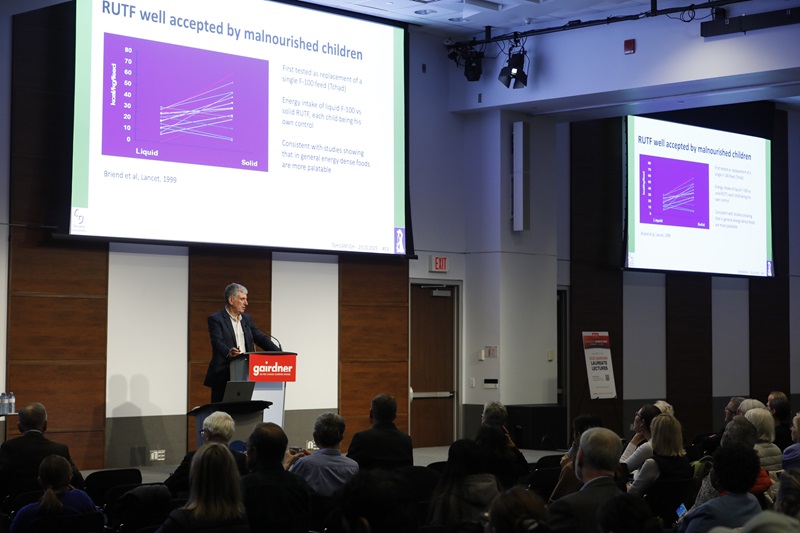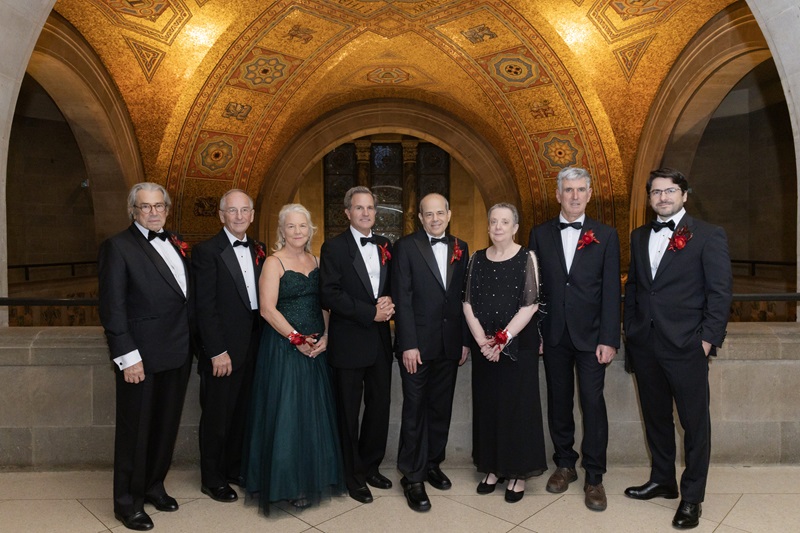Michael J. Welsh
.tmb-cfthumb_fb.jpg?Culture=en&sfvrsn=2b5338a9_1)
Dr. Michael Welsh obtained an MD and completed an internal medicine residency at the University of Iowa. He trained in pulmonary medicine and research at the University of California, San Francisco and University of Texas, Houston. He then joined the University of Iowa where he is Professor of Internal Medicine, Molecular Physiology and Biophysics, and Neurology. He was an HHMI Investigator from 1989-2024. He directs the Cystic Fibrosis Research Center and Pappajohn Biomedical Institute.
Dr. Welsh’s clinical activities focused on pulmonary diseases. He cared for people with cystic fibrosis on the wards and in the clinics. That experience and the lack of effective treatments influenced his decision to pursue the fundamental defects causing cystic fibrosis lung disease with the hope of improving the lives of people suffering from cystic fibrosis.
He has trained many physicians and scientists and received the Distinguished Mentor Award, University of Iowa Carver College of Medicine. Dr. Welsh served as president of the American Society for Clinical Investigation and the Association of American Physicians. He was elected to the National Academy of Medicine, American Academy of Arts and Sciences, and National Academy of Sciences. He received the Gordon Wilson Medal, Walter Cannon Award, Steven Beering Award, Warren Alpert Foundation Prize, Kober Medal, Shaw Prize in Life Science and Medicine, Wiley Prize, and Switzer Prize.
The Work:
Cystic fibrosis is a genetic disorder affecting more than 125,000 people worldwide. It arises from mutations in the cystic fibrosis transmembrane conductance regulator (CFTR) gene, which encodes a protein responsible for regulating chloride and bicarbonate transport across cell membranes. This process is crucial for maintaining the fluidity of mucus and other protective substances in organs like the lungs and pancreas. When the CFTR protein malfunctions, it results in clogged passageways, severe infections, and organ damage.
Beginning in the early 1990s, Dr. Michael Welsh and colleagues revolutionized the understanding of cystic fibrosis by demonstrating that the CFTR protein is a chloride ion channel and is regulated by phosphorylation and ATP. They also showed how mutations disrupt CFTR function, preventing its proper activity in the cell membrane, and that misfolding and impaired function caused by the common DF508 mutation can be repaired in the laboratory.
This deeper understanding enabled the classification of cystic fibrosis mutations and paved the way for targeted therapies to correct CFTR protein defects. Dr. Paul Negulescu led the research team at Vertex Pharmaceuticals that developed the first-ever protein folding correctors, a novel class of medicines. Specifically, these medicines act by restoring the function of the CFTR protein. Two of these, Trikafta and more recently Alyftrek, are triple-combination therapies with the potential to treat approximately 90% of cystic fibrosis patients, including those with the DF508 mutation.
The Impact:
The work of Drs. Welsh and Negulescu and their teams have transformed cystic fibrosis from a fatal disease into a manageable condition for patients receiving treatment, showcasing how fundamental science can lead to life-saving innovations. Their efforts span the entire biomedical journey, from basic discovery to therapeutic intervention.
Previously, cystic fibrosis treatments focused only on managing symptoms, with patients facing significantly reduced life expectancy. Today, treatments built on Dr. Welsh’s discoveries and innovations by Dr. Negulescu’s team at Vertex address the disease's root causes and can provide greater quality of life and life expectancy to those who receive it.
Beyond cystic fibrosis, their achievements have reshaped genetic medicine by proving the viability of mutation-specific treatments and offering a framework for addressing other protein folding disorders.



24d51815-2494-4f8a-b8f0-dc824e0d99cc.tmb-cfthumb_fb.jpg?Culture=en&sfvrsn=723f4ba6_1)


.tmb-cfthumb_fb.jpg?Culture=en&sfvrsn=72bc0e8_1)




3525a8b6-b65a-4e24-a7f6-158e625c18ab.tmb-cfthumb_fb.jpg?Culture=en&sfvrsn=63e08bc9_1)
